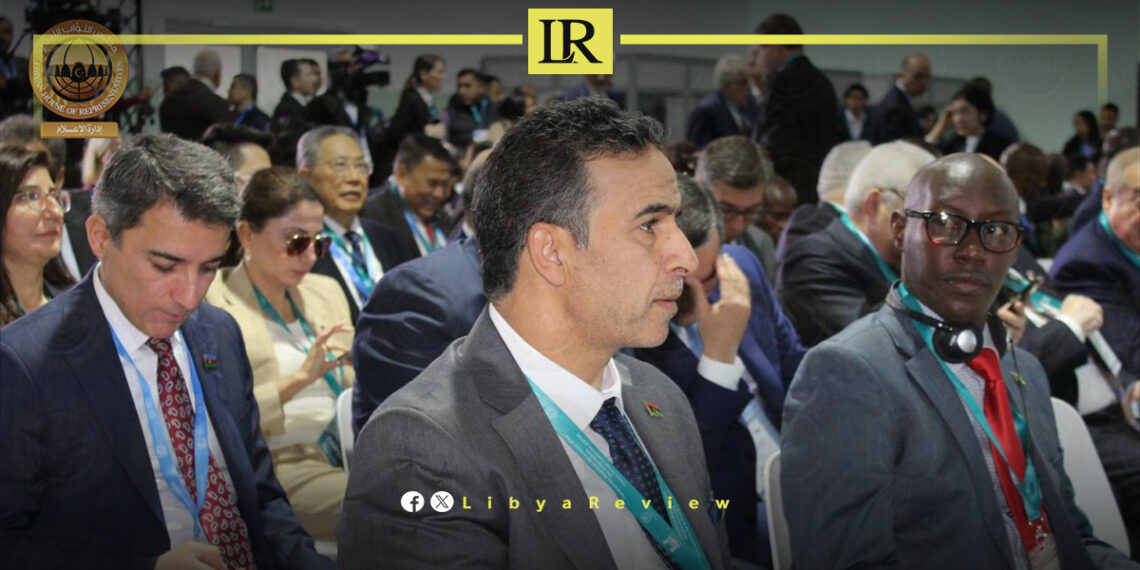Deputy Speaker of the Libyan House of Representatives, Fawzi Al-Nuwairi, accompanied by the Head of the Council’s Office, Abdullah al-Fadil, took part in the parliamentary discussions organized by the Inter-Parliamentary Union in cooperation with the National Council of the Republic of Azerbaijan. These discussions were part of the 29th session of the Conference of the Parties to the United Nations Framework Convention on Climate Change (COP29) held in Baku, the capital of Azerbaijan.
Abdullah Belihaq, spokesperson for the Libyan House of Representatives, highlighted that the meeting focused on several key issues, including understanding the real impacts of climate change, the role of parliaments in mitigating its effects, and enhancing resilience against climate-related challenges. The discussions also emphasized global migration patterns influenced by climate change.
The two-day meeting concluded with the adoption of a final document and a roadmap outlining future parliamentary actions on climate change. The event saw participation from several UN climate experts, international organizations, the London School of Economics, the Red Crescent, and various international youth organizations.
Libya has been in chaos since a NATO-backed uprising toppled longtime leader Muammar Gaddafi in 2011. The county has for years been split between rival administrations.
Libya’s economy, heavily reliant on oil, has suffered due to the ongoing conflict. The instability has led to fluctuations in oil production and prices, impacting the global oil market and Libya’s economy.
The conflict has led to a significant humanitarian crisis in Libya, with thousands of people killed, and many more displaced. Migrants and refugees using Libya as a transit point to Europe have also faced dire conditions.
The planned elections for December 2021 were delayed due to disagreements over election laws and the eligibility of certain candidates. This delay has raised concerns about the feasibility of a peaceful political transition.
Despite the ceasefire, security remains a significant concern with sporadic fighting and the presence of mercenaries and foreign fighters. The unification of the military and the removal of foreign forces are crucial challenges.


